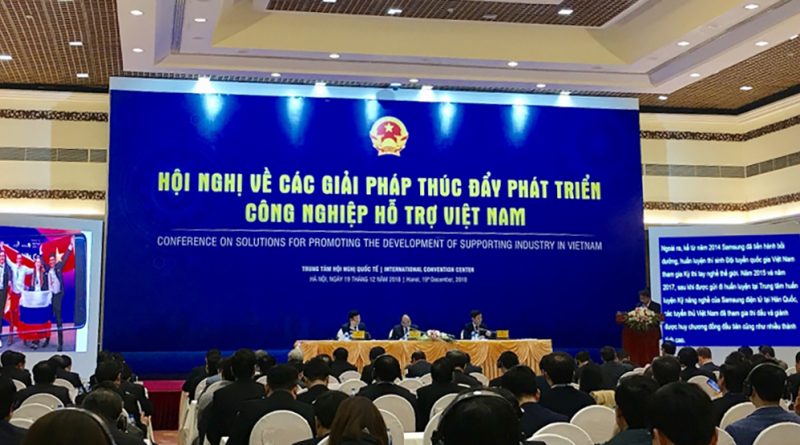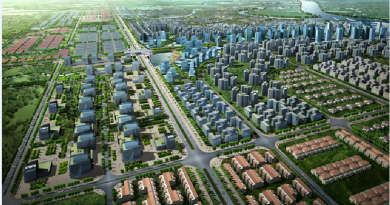Thaco looks to develop a mechanical centre in central region
Local car maker Truong Hai Automobile Company (Thaco) wants to develop a mechanical centre in Central Vietnam to contribute to the development of Vietnam’s supporting industries.
This was announced by Tran Ba Duong, chairman of Thaco, at the Conference On Solutions For Promoting the Development of Supporting Industries in Vietnam organised in Hanoi on December 19.
According to Duong, Thaco agrees to the government’s idea to develop a supporting industry centre in the three regions. In Chu Lai, Thaco is operating a mechanical complex to outsource simple steel materials as well as modern machines requiring strict quality standards.”
“Thaco’s existing mechanical complex is serving partners like Doosan Vina and General Electric. In the coming time, the company wants to develop a mechanical complex in Central Vietnam to lure in further investment from both local and foreign enterprises,” Duong added.
To date, the localisation percentage of Thaco’s automobile products is quite high, with 35-40 per cent for trucks, 55-60 per cent for commercial vehicles, and 25 per cent for under-nine seat cars.
Thaco issued strategy for the development of the mechanical industry, including automobile mechanics, agricultural mechanics, construction mechanics, and other industrial mechanical equipment, as well as the application of Industry 4.0 in production, production management, and innovations in improving productivity and product quality.
At the conference, Deputy Prime Minister Trinh Dinh Dung emphasised that the country’s supporting industries are able to meet the current demand, but the scale and capacity of supporting industry businesses remains limited.
The country has over 3,000 businesses operating in the supporting industries, accounting for 4.5 per cent of businesses in the processing and manufacturing sectors, generating more than 550,000 jobs.
Speaking at the conference, Prime Minister Nguyen Xuan Phuc cited Japan as a good example of an economy housing strong supporting industries. Even though the majority of Japanese supporting businesses are medium, small, and micro-sized, they are integrated deeply into the global manufacturing chain with high added-value production.
“Vietnam should strive to compete in regional and global markets, manufacturing parts for cars, motorbikes and even airplanes. The government has always been giving priority access to land for the supporting industry, and has never said no to any such request,” Phuc said.
Source: vir.com.vn










